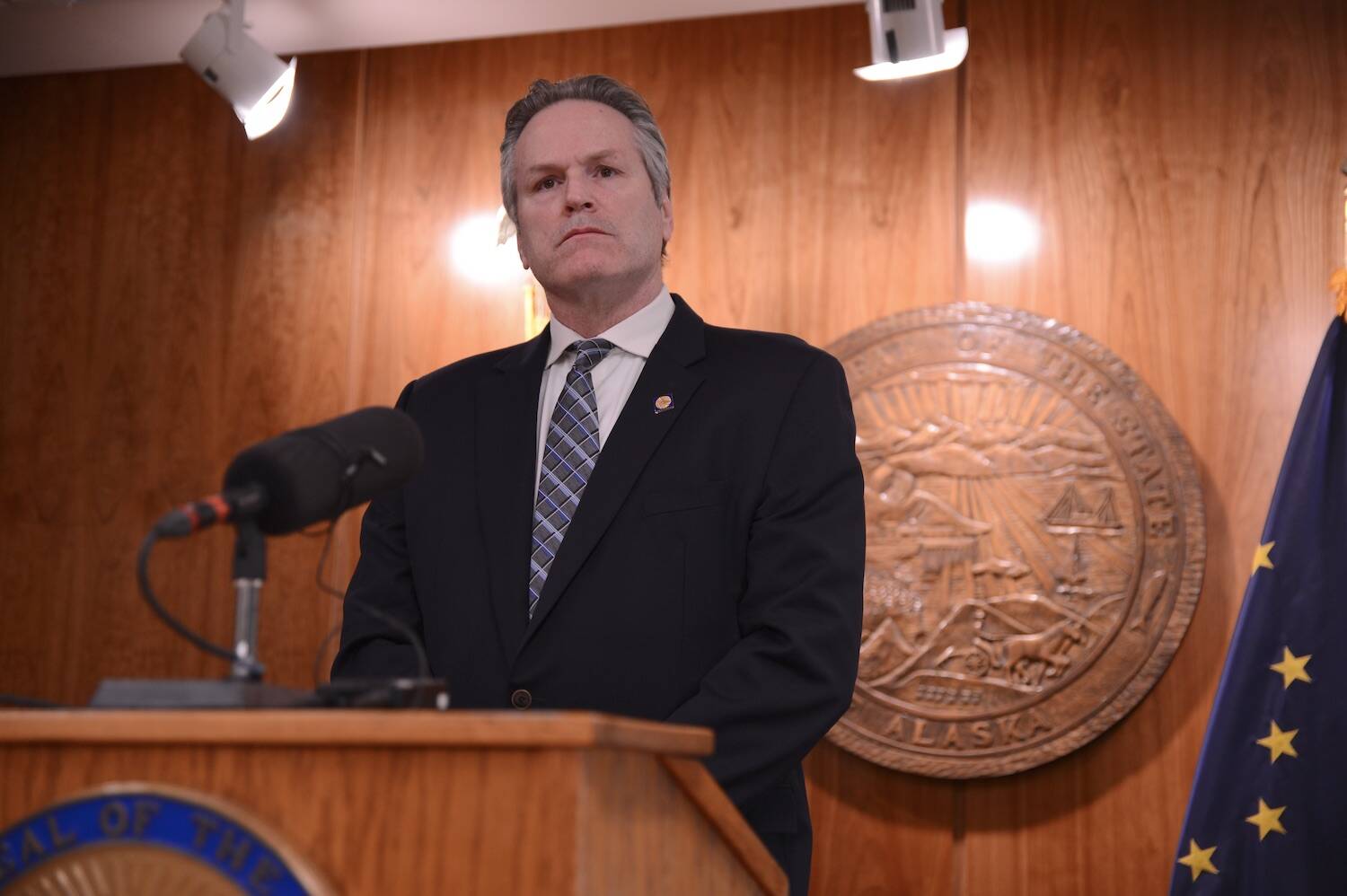Gov. Mike Dunleavy has vetoed five bills passed by the Alaska Legislature after the constitutionally mandated date to end its session.
The canceled bills include bonding authority for a cruise ship dock in Seward, a bill allowing licensed 18-year-olds to serve alcohol, a measure that would prohibit insurance companies from denying coverage to elected officials, legislation dealing with abandoned boats, and a proposal that would have allowed employers to pay workers with short-term electronic cards.
“It doesn’t surprise me remotely,” said Kodiak Republican Rep. Louise Stutes, who wrote the bill dealing with abandoned boats.
Alaska’s constitution limits lawmakers to a 121-day legislative session, which this year ended May 15. In the final hours of that day, legislators worked frantically to process a logjam of legislation through the House and Senate and on to the governor.
Over the objections of some legislators, the state House worked past midnight and into the early hours of May 16, before adjourning the session.
“It’s a frustrating way to do business,” said Rep. Kevin McCabe, R-Big Lake and sponsor of one of the vetoed bills.
Legislative attorneys said afterward that the five bills that passed after midnight were likely unconstitutional. Political writer Jeff Landfield said he would sue if the bills became law, and other legal challenges were possible.
Dunleavy’s vetoes, signed Tuesday, were announced Thursday by the governor’s office via email and posted on the Legislature’s website.
“I understand the Legislature’s desire to keep working into the early morning hours of May 16 so its members could pass a few more bills before the conclusion of the 33rd session,” Dunleavy said in a prepared written statement about the decision, adding that the Alaska Constitution “is unambiguous” about the deadline.
“All five bills passed after midnight of the 121st day, and the session was not extended by an affirmative vote of at least two-thirds of the membership of each body. After consulting the Attorney General Treg Taylor, I determined the only course of action was to adhere to the constitution and veto the bills,” Dunleavy said.
Rep. Jesse Sumner, R-Wasilla and the lead figure behind two of the bills, said on Thursday that he had hoped that the governor would allow the bills to become law so the issue could be fought in court.
“I would have preferred to let the challenge play out,” he said.
The bills might still have been legal, he said, because they were passed on the 121st legislative day, which doesn’t end until lawmakers adjourn for the day, regardless of the time on the clock.
Daylight saving time, which took effect during the legislative session, could also have been a factor, with legislators potentially arguing that they were still working within standard time hours.
“I think it’s a real bummer. I’d rather have gone to court,” he said.
Within one of Sumner’s bills was a section from Rep. Andrew Gray, D-Anchorage, that would have required alcohol-selling businesses to post warning signs about the link between alcohol consumption and cancer.
Gray said though he was disappointed at the vetoes, he was anticipating them.
Multiple legislators said that all five bills could be reintroduced next year, but that their passage into law shouldn’t be considered a guarantee.
“No legislation is automatic just because it passed before,” Sumner said, and the upcoming election could make a repeat even more difficult, he added.
Gray said that when it comes to his proposal, there’s a silver lining: He had to limit this year’s idea to get support for passage. Next time, he may think bigger.
“I think going into the next legislature, I would try to do the bill in the way we wanted to do it,” he said. That would mean potentially more signage and other elements that might be “a little more meaningful,” he said. “We can do it better the next time around.”
• James Brooks is a longtime Alaska reporter, having previously worked at the Anchorage Daily News, Juneau Empire, Kodiak Mirror and Fairbanks Daily News-Miner. This article originally appeared online at alaskabeacon.com. Alaska Beacon, an affiliate of States Newsroom, is an independent, nonpartisan news organization focused on connecting Alaskans to their state government. Reporter Yereth Rosen contributed to this article.

